Topic: Parametric Synergy: Maya & Grasshopper for Sustainable Design
Date: May 10 – 11, 2025
Time: 14:00 – 18:00 GMT
Format: Online on Zoom
Duration: 2 Sessions (8 Hours)
Registration Deadline: May 9th, 2025
Total Seats: 50 seats
Difficulty: Beginner-Intermediate
Language: English
Certificate: Yes
General Registration: 100 EUR
First 10 Seats: 85 EUR
Join free: with Full Access membership
Fee For Digital Members: 70 EUR (15% discount available only for Digital Members)
Organized By: PAACADEMY
Tutor: Nicolas Turchi, Ali Al-siwife
Recordings: Recordings will be available for all participants afterward indefinitely.
Introduction to Parametric Synergy:
Leveraging Maya’s organic modeling capabilities alongside Grasshopper’s procedural analysis. This workshop empowers students to enhance their design workflow. Participants will create a parametric tower in Maya, unleashing the power of organic modeling, and then validate and optimize their design using Grasshopper.
This workshop focuses on parametric and polygonal free-form modeling techniques in Autodesk Maya. A case study modeled in Maya will be exported to Rhino. Grasshopper is used to procedurally optimize the design based on environmental considerations such as solar exposure, wind, and visibility. Additionally, Galapagos will facilitate generative design optimization through a score-based evaluation system for the analysis.
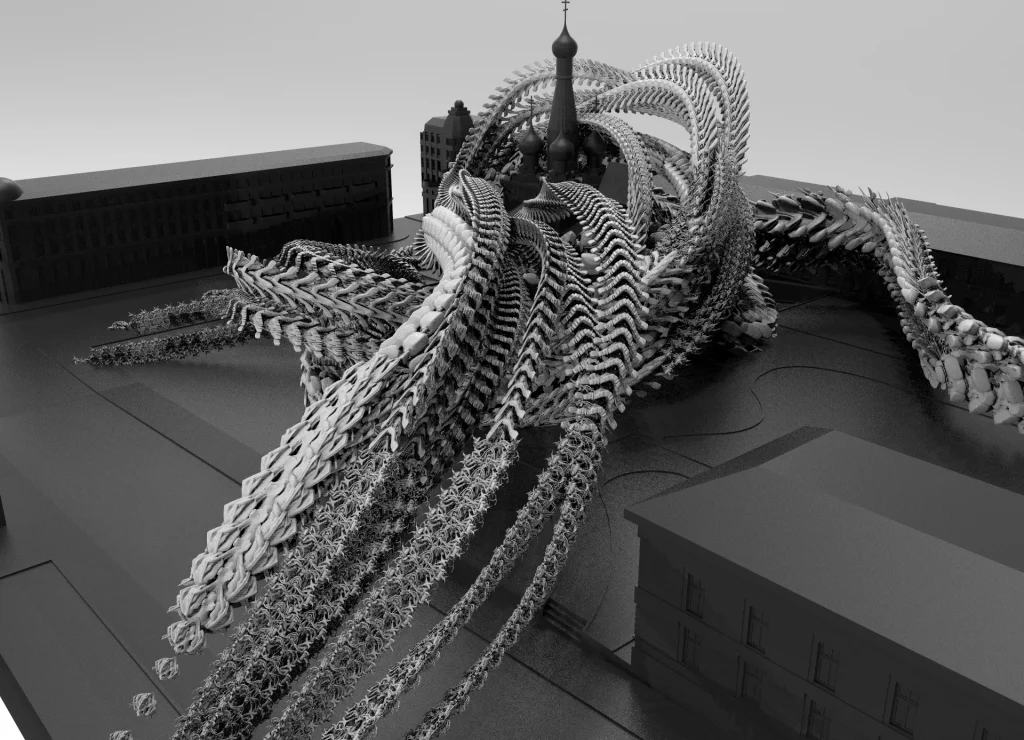

The Scope of Parametric Synergy:
This workshop is designed to provide students with an in-depth understanding of organic modeling using Autodesk Maya, addressing the complexities that often challenge designers in creating intricate forms. Participants will gain hands-on experience in developing unique designs by mastering both fundamental and advanced modeling techniques.
Recognizing the increasing importance of sustainability in contemporary architecture, the workshop emphasizes the integration of environmental analysis into the design process. Students will acquire essential skills to assess and enhance the environmental performance of their projects, ensuring they meet current and future sustainability standards.
Working individually, students will begin by conceptualizing and modeling their designs in Maya, focusing on an organic and parametric design proposal. Subsequently, they will export their models to Rhino for geometric optimization, preparing the designs for comprehensive analysis. Utilizing Grasshopper, participants will conduct environmental assessments based on predefined parameters, employing plugins such as Ladybug for solar analysis, Butterfly for wind simulations, and Galapagos for optimizing visibility and other performance criteria.
Throughout the workshop, a combination of demonstrations and hands-on exercises will facilitate learning. Instructors will provide feedback, guiding students through the iterative process of design, analysis, and optimization.
By the end of the workshop, participants will have developed a robust workflow that seamlessly integrates organic modeling with procedural analysis, equipping them with the tools to create innovative and sustainable architectural designs.

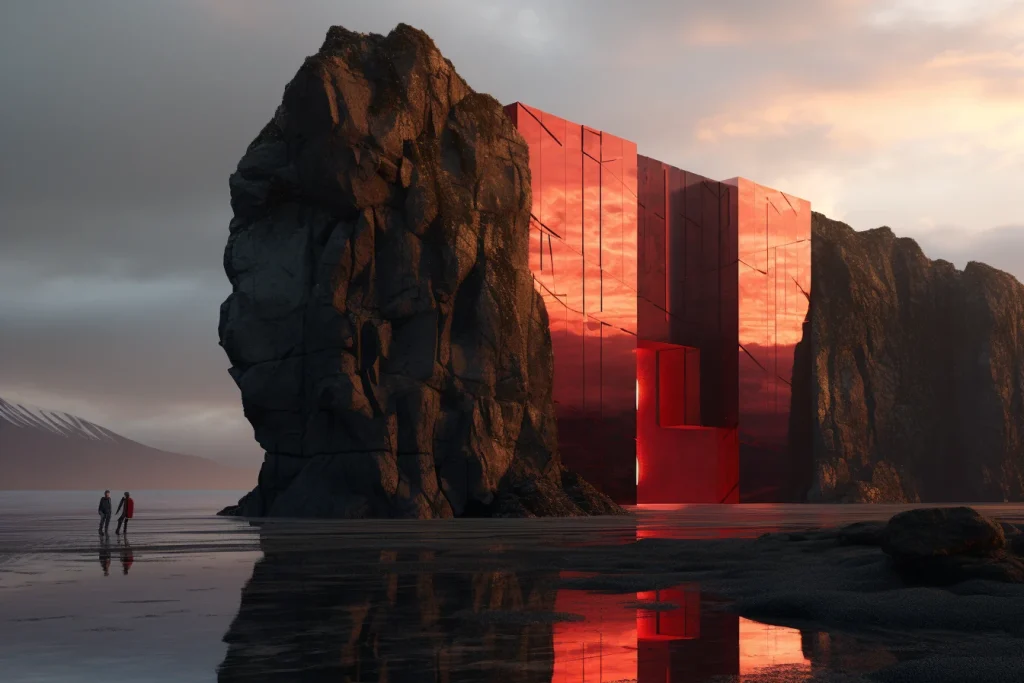
Key Learning Topics:
- 3D Modelling in Maya: Master organic parametric modeling techniques.
- Fundamental & Advanced Techniques: Develop a solid foundation and explore advanced design strategies in Maya.
- Design Thinking: Cultivate a deeper understanding of form-finding methodologies.
- Maya-to-Grasshopper Workflow: Learn to transition designs effectively from Maya to Rhino and then into Grasshopper.
- Grasshopper Fundamentals: Acquire essential skills in using Grasshopper.
- Environmental Analysis: Utilize tools such as Ladybug for sun analysis, Butterfly for wind analysis, and Galapagos for optimizing visibility.
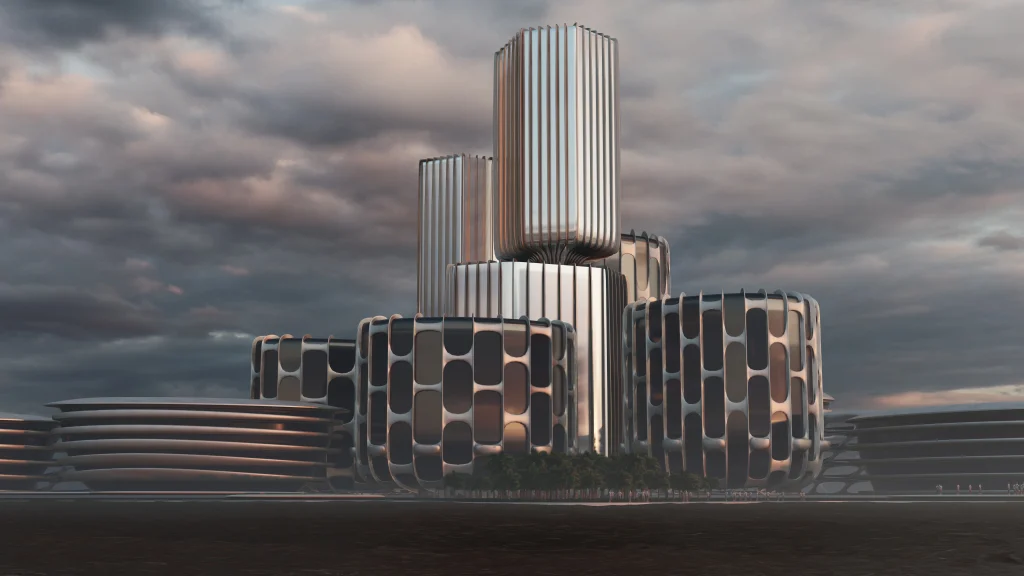
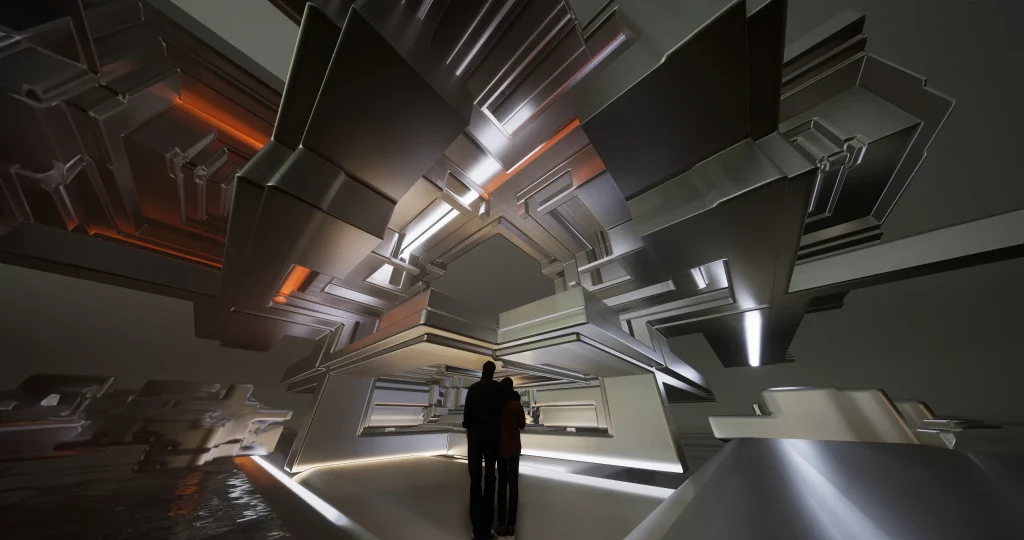
Program:
Day 1:
- Introduction to Polygonal Modeling
- Advanced Procedural Modeling Techniques
- Exploring Maya’s Organic Modeling Capabilities
- Hands-on Design Development
Day 2
- Grasshopper for Environmental Design Integration
- Advanced Sun, Wind, and Visibility Simulations
- Utilizing Ladybug, Butterfly, and Galapagos Plugins
- Generative Design Optimization for Sustainability
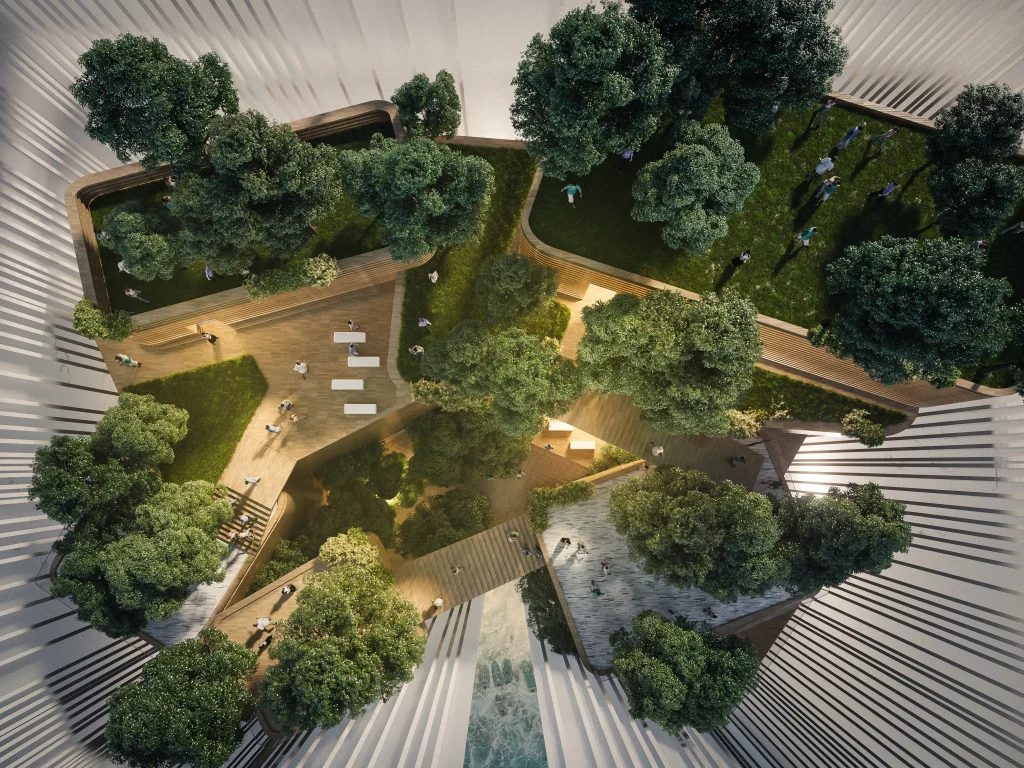
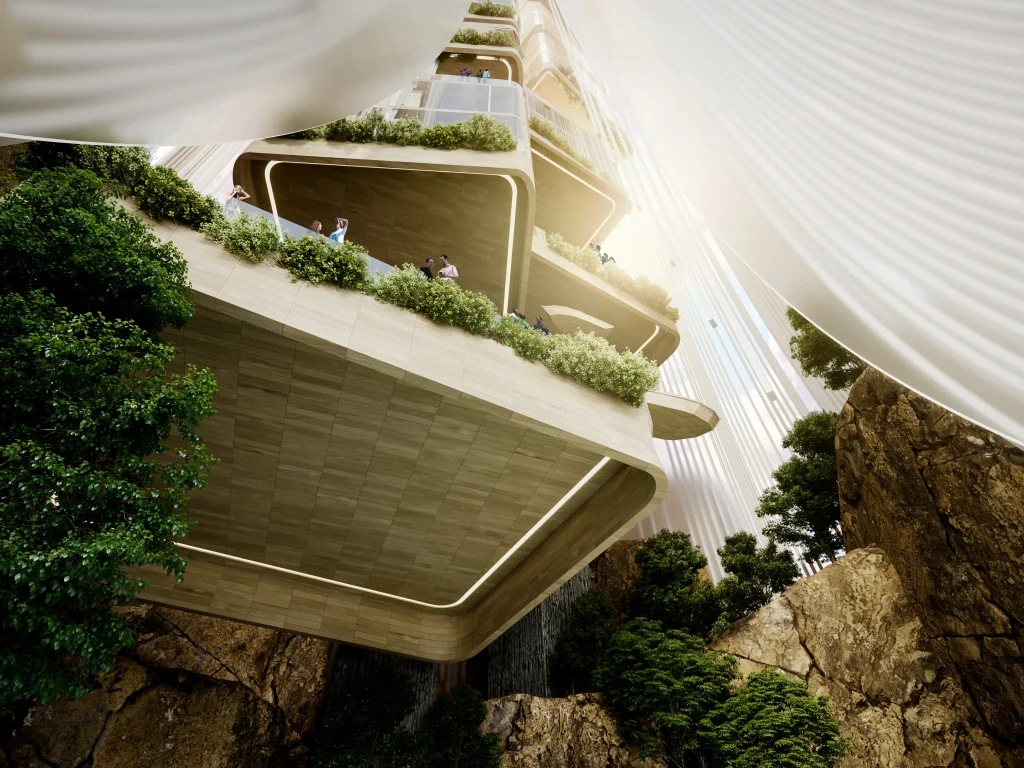
Software &
- Maya
- Rhinoceros
- Grasshopper
- Ladybug
- Butterfly
- Pufferfish
- Galapagos
Workshop Notes:
- Please ensure you have all the software installed before the workshop starts. Software installation is NOT a part of the workshop.
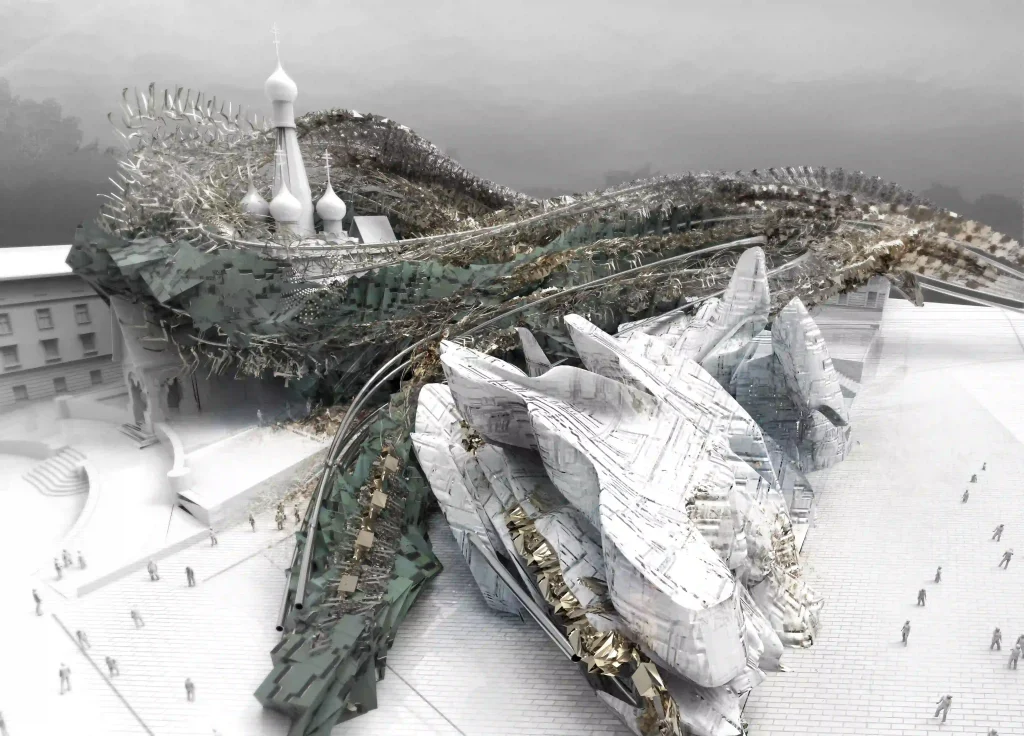
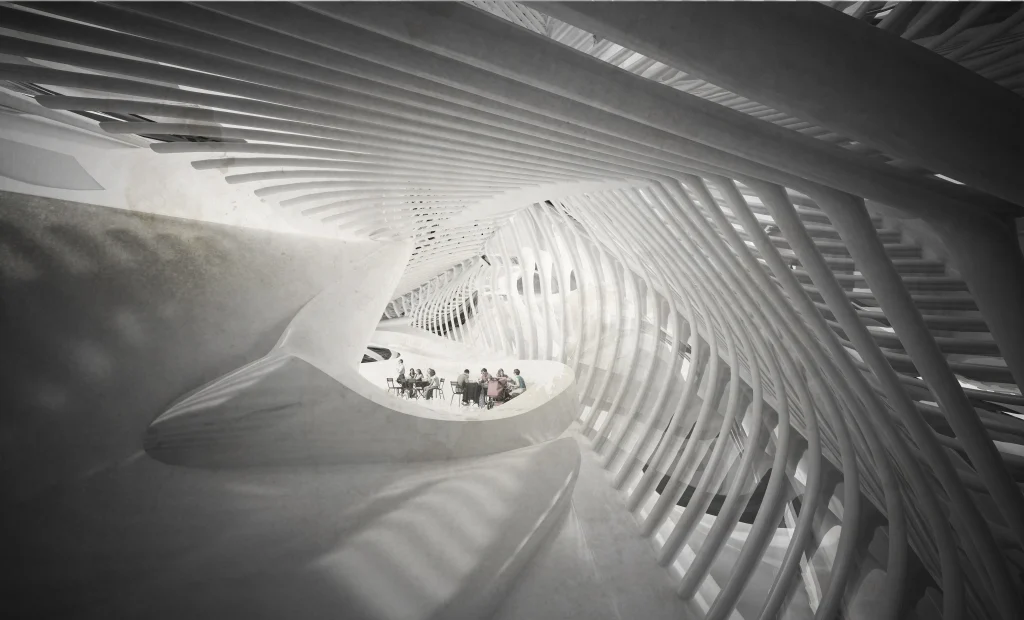
Instructor:
Nicolas Turchi

Nicolas Turchi is the Director of the international RIBA chartered architecture studio nt-ar, as well as an ARB- and RIBA-accredited architect in the United Kingdom. He is a Professor at the American University in Dubai and an Adjunct Professor at the University of Bologna, with previous academic experience at the Manchester School of Architecture, Harvard University, Politecnico di Milano, and Birmingham City University.
Nicolas holds a Master in Architecture II from Harvard University and a five-year Bachelor’s and Master’s Degree in Architecture from the University of Bologna, where he received the prestigious Giacomo Venturi Award for the best thesis. Before founding nt-ar, with offices in both the UK and Dubai, he worked for renowned international studios, including Zaha Hadid Architects, Peter Eisenman Architects, Hernan Diaz Alonso Architects, Mario Cucinella Architects, and 5+1AA.
Turchi is particularly passionate about emerging technologies and their impact on architectural theory. His interdisciplinary research explores the relationship between architecture, philosophy, and physics, with numerous publications on the introduction of the fourth dimension in architecture (“Spacetime Architecture”). His work has been widely published and exhibited on leading platforms and at major international events, including the Venice Biennale, Milan Design Week, ArchDaily, and the Theatre of Digital Art (TODA) in Dubai.
Ali Al-Siwife

Ali Al-Siwife is an architectural designer with a passion for computational design. As a lead designer at NT_AR, he integrates computational design and analysis into a range of innovative projects. A student from the CPU[Ai] atelier at MSA, his approach is enriched by insights from leading researchers in computational thinking.
Important Notes:
- The “Parametric Synergy: Maya & Grasshopper for Sustainable Design” Studio workshop by PAACADEMY will start at 14:00 (GMT) on Saturday, May 10th, 2025.
- Total sessions: 2 Sessions
- The teaching duration per session will be 4 hours.
- Students will have time for a break between teaching hours.
- Each session and the entire studio will be recorded, and videos will be available for participants just a day after the class for unlimited time.
- PAACADEMY will provide a certificate of attendance.
- The studio has limited seats. Tickets are non-transferable & non-refundable. Please read carefully before you register.
Topic: Parametric Synergy: Maya & Grasshopper for Sustainable Design
Date: May 10 – 11, 2025
Time: 14:00 – 18:00 GMT
Format: Online on Zoom
Duration: 2 Sessions (8 Hours)
Registration Deadline: May 9th, 2025
Total Seats: 50 seats
Difficulty: Beginner-Intermediate
Language: English
Certificate: Yes
General Registration: 100 EUR
First 10 Seats: 85 EUR
Join free: with Full Access membership
Fee For Digital Members: 70 EUR (15% discount available only for Digital Members)
Organized By: PAACADEMY
Tutor: Nicolas Turchi, Ali Al-siwife
Recordings: Recordings will be available for all participants afterward indefinitely.

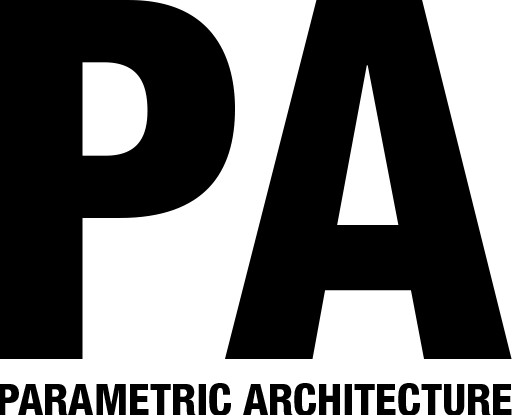

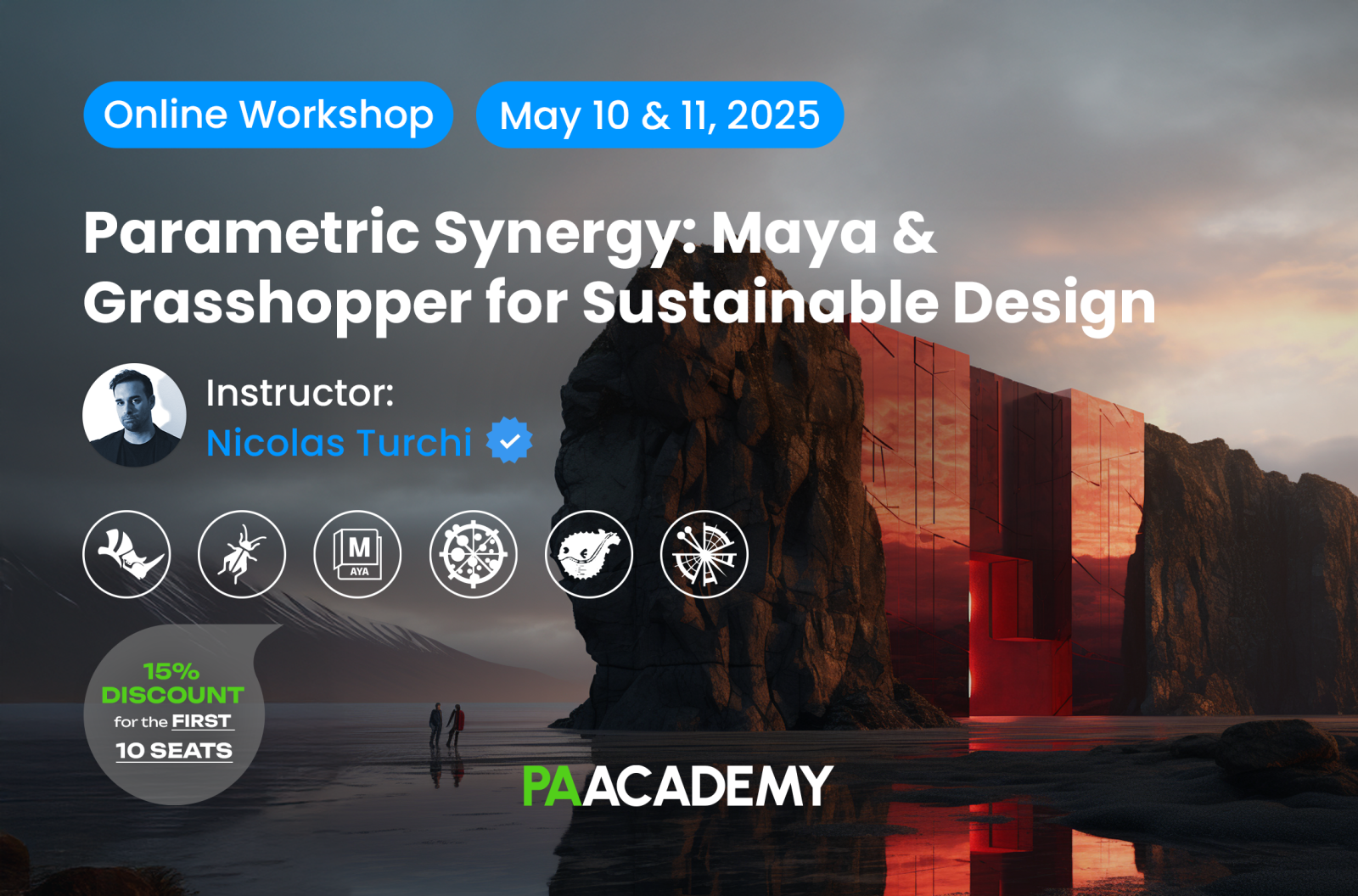
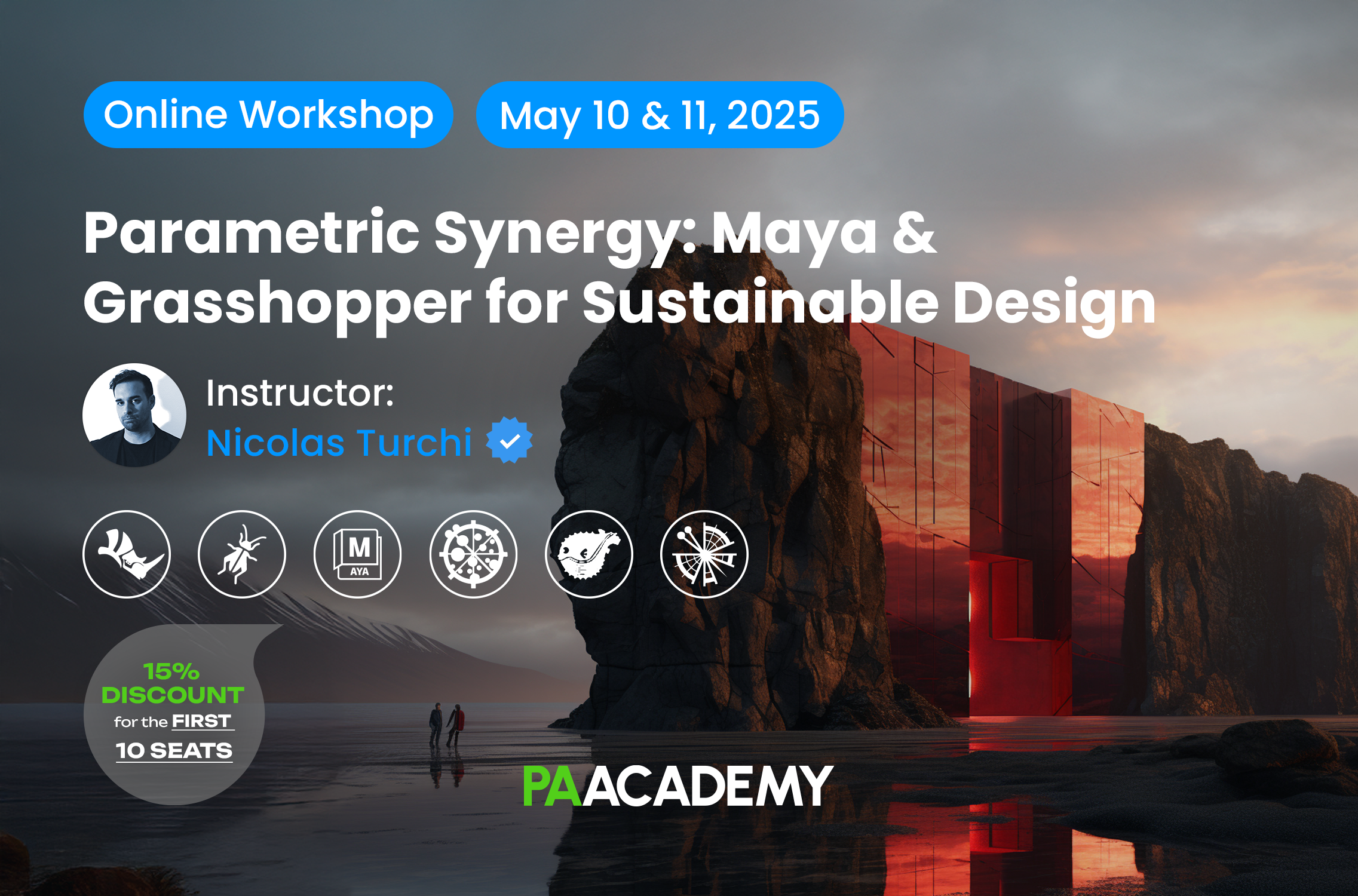

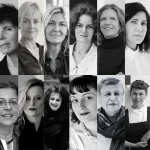


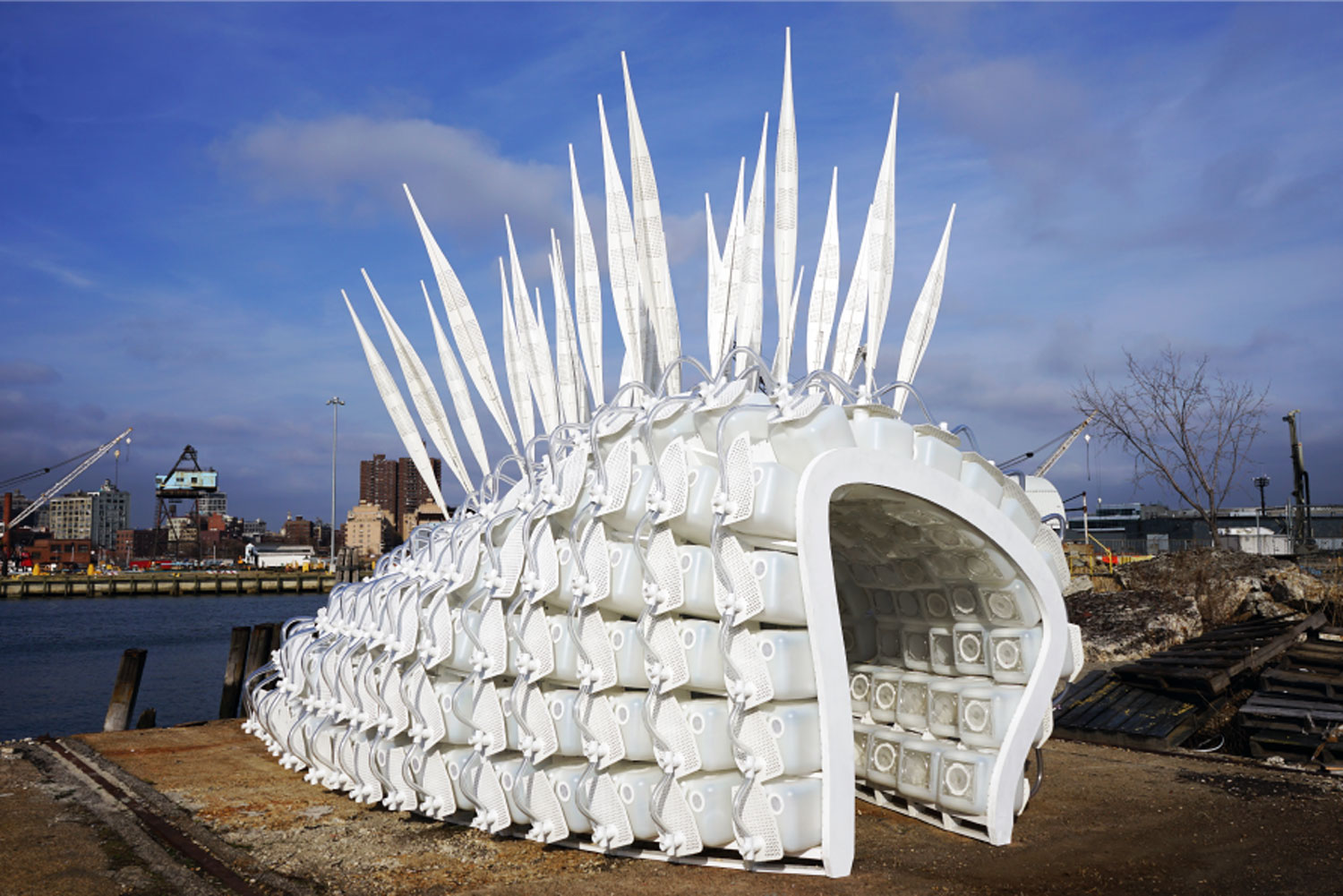


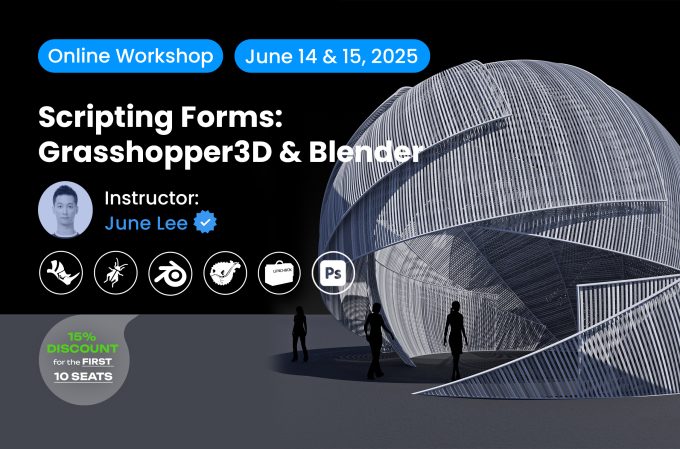






Leave a comment